Dear friends world-wide!
Plum Village recently hosted our first online neuroscience retreat June 23 to June 28 with the title “Understanding Our Mind”. Let us enjoy the sweet aftertaste of this retreat through the feedback from our two Dharma teachers – Sr. Chan Duc (Sr Annabel) and young Dharma teacher Br. Troi Bao Tich, and a retreat participant, Aileen who shared their impressions and experiences.
When we understand how our mind works, the practice becomes easy.
Zen master Thuong Chieu
Sr Chan Duc
Suffering can be transformed into happiness. When we train our mind we can be our own witness to the transformation that takes place in our person.
The message of this retreat is one of hope. The human mind can be trained and transformed, and the community of practice can help this transformation to take place. Suffering can be transformed into happiness. When we train our mind we can be our own witness to the transformation that takes place in our person. The Buddha said, “There is a thing that when trained becomes manageable. That thing is the mind. There is a thing that when untrained remains unmanageable. That thing is the mind.”
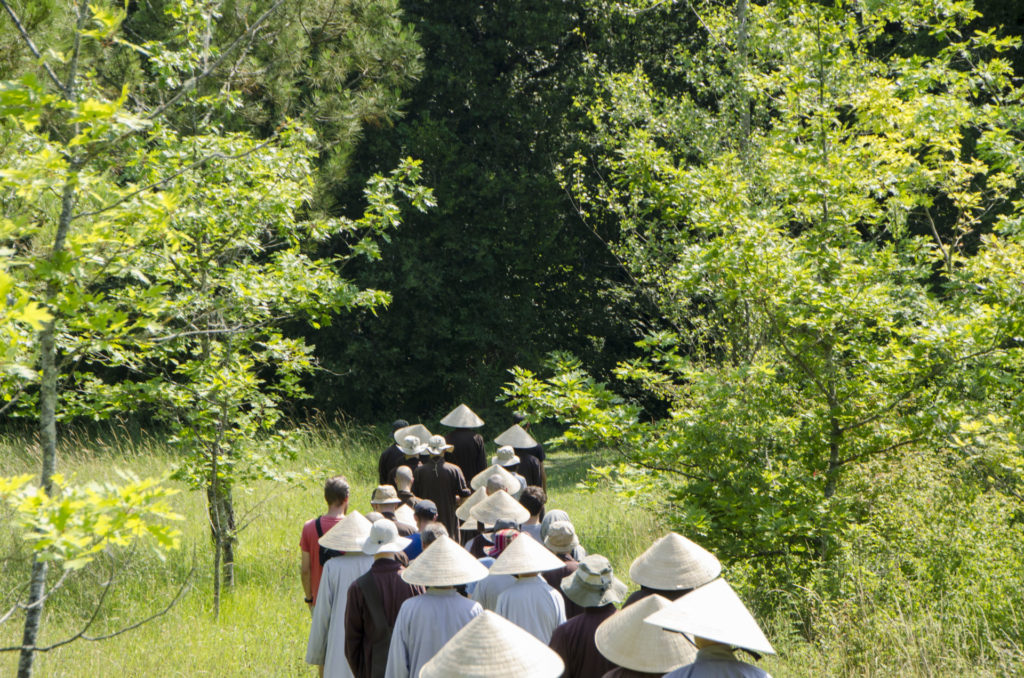
Br. Bao Tich
We see that Buddhism and science can go hand in hand and enrich each other. Buddhism has the spirit of enquiry and is free from dogma. The discoveries in quantum physics are consistent with Buddhist insights, for example, the no-birth, no-death nature of matter and energy, the non-dual aspect of wave and particle, of space and time, the interconnectedness of all phenomena, the interbeing nature and non-local nature of atoms and subatomic particles. Recent experiments in neuroscience show that meditation can lead to long-lasting positive changes in our brains.
Aileen
As a working mother of two children, my life is very full. I encountered Plum Village and the teachings of Thay via an interview between Oprah Winfrey and Thay on Youtube about a year ago during a difficult time in my life…. I was just searching for meditation practices and found the interview on Youtube. After three minutes of listening and seeing the way Thay smiled, I realized that this person was someone I needed to learn from.
Sr Chan Duc
From the beginning of the retreat we began to see how important it is to understand and train our mind. Our mind and our brain are not two separate realities, so the discoveries of neuroscience can help us understand our mind. Neuroscience can demonstrate that the world we think of is something very real outside of our consciousness, but it is primarily a construct of our brain and our mind. This is something that yogis (meditators) have discovered for thousands of years. So the practise of mindfulness is to be aware of your body, your feelings, and perceptions at all times during the day. Then you will see that the objects of your perceptions are not the realities that you thought they were and you will be free from fear.
Br. Bao Tich
The teachings given in this retreat explored Buddhist psychology which allows us to understand our mind. There were also dialogues between neuroscientists and monastics. The teachings combined practical topics such as mindfulness of our breathing and body, taking care of our feelings, and how to transform our suffering with deeper teachings such as non-duality of subject and object of consciousness, Right View (including no-birth, no death, no coming, no going), the universal and particular mental formations, and the 8 consciousnesses.
Aileen
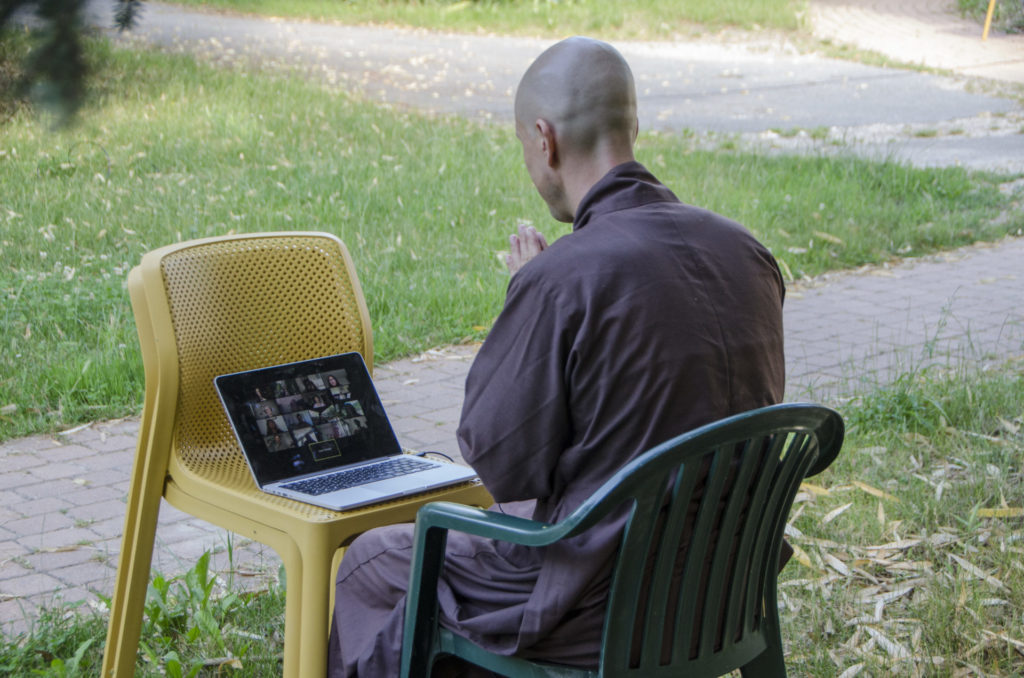
From the beginning of our Dharma sharing sessions our whole group felt immediately connected and I felt it was the first time in my life I had the feeling that I was really listened to.
This was my very first retreat with the Plum Village Sangha, and the first retreat that I had experienced online. For me this retreat was everything, it answered all my needs in that moment, I had the feeling that it was a retreat just for me. I felt very nourished by the teachings and practices offered by the community. From the Dharma talks to the Dharma sharing and guided meditations. From the beginning of our Dharma sharing sessions our whole group felt immediately connected and I felt it was the first time in my life I had the feeling that I was really listened to. By the end of the retreat I wanted to say… can we just keep doing this every day? Now our Dharma sharing family has planned to meet once a month or when needed, online to share with each other. I also particularly enjoyed the guided sitting meditation on the topic of the inner child which allowed me to get in touch with and heal things inside of me.
Sr Chan Duc
The retreat was very impressive. It involved much hard work from our technician monks and careful preparation by the two Dharma teachers who were inspired to organise it. The Dharma sharing families were particularly impressive. This time the participants had to stay in their own homes. On one screen we could see our whole Dharma sharing family, which had friends from Southeast Asia, Africa, and Northern Europe sharing together. The Dharma talks and panels were of high quality. The morning guided meditations were carefully chosen to fit the topic of the Dharma talk, and allowed participants to penetrate the teachings of impermanence and no-self.
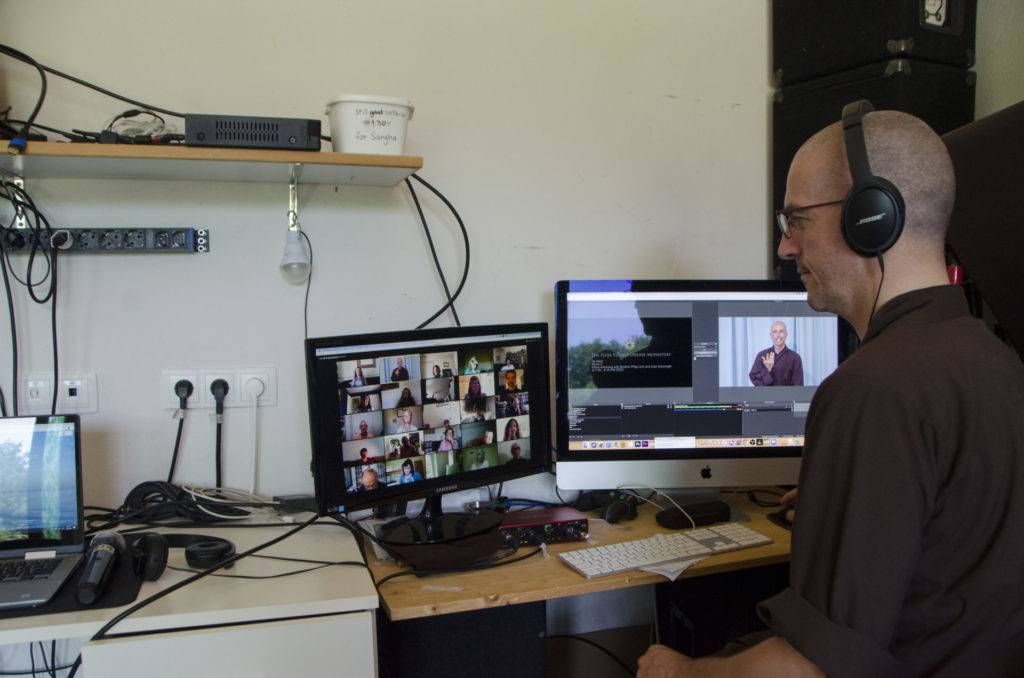
Br. Bao Tich
The retreatants shared that they could feel and were nourished by the collective energy of practice of the sangha, even in an online retreat. The quality of the Dharma sharing was very high and there was openness, trust, deep sharing and transformation similar to a regular retreat. Some people who could not come to Plum Village due to limited time or finances were able to join online. A wonderful benefit is that the retreatants’ homes became their practice center. Sometimes our friends are not able to integrate the practices into their own environment after they leave Plum Village, but the online retreat really helps in that regard.
In my daily life, the practice of ‘appropriate attention’ has been helpful. Thay has shared the practice of ‘What’s not wrong?’ Thus, in my daily life, I try to pay attention to all the conditions of happiness that are available instead of focusing on what I am lacking or what is not going well. I also keep a gratitude journal and many of our gathas (practice poems) give rise to gratitude. Another practice that I really appreciate is ‘letting go.’ In this practice, we speak of ‘the joy and happiness born from letting go.’ In my education, accumulation of knowledge was encouraged – the more you know, the better. In Buddhism however, knowledge may become an obstacle. Thus, I try to practice letting go – for example, of ideas about happiness. When I see myself grasping (at an idea, a thing or a person), I try to gently let go. In this way, I feel lighter, more peaceful and free.
Sr Chan Duc
Every day, instructions on walking meditation were given to inspire us just before the walking meditation began. Some participants needed to walk in their apartment and others could go out to a nearby park or a field. Although separate, in one sense we all walked together.
At the end of the retreat, everyone who had participated felt that their practice of understanding their mind had deepened and could be continued.
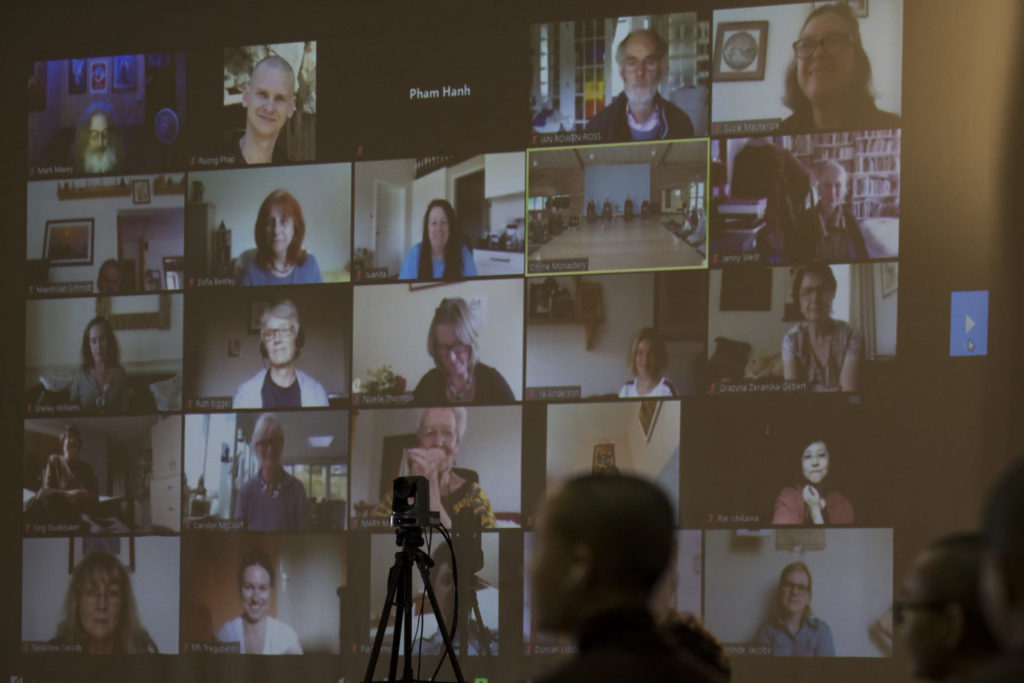
Aileen
I enjoyed the combination of the teachings and practices of meditation with the research and discoveries of neuroscience. The combination was very complimentary and allowed me to access and understand the teachings of Buddhism more clearly. As someone from the Philippines, which is predominantly Christian, this retreat gave me more understanding of how I can apply these teachings in my daily life and how to integrate them into my religious background with harmony This allows me to be nourished and benefit from the practices of meditation and the community.
Find out about upcoming Plum Village online retreats.



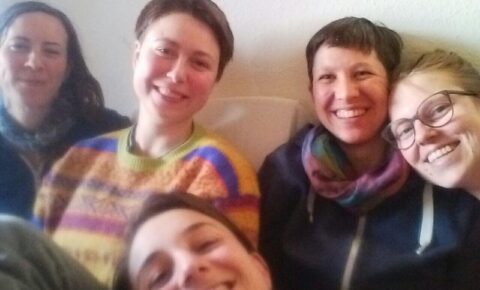
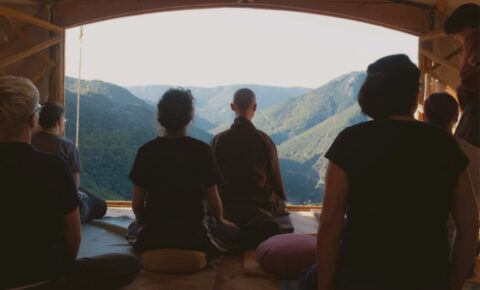
Share Your Reflections